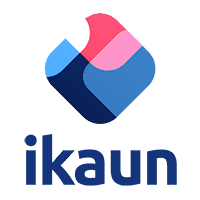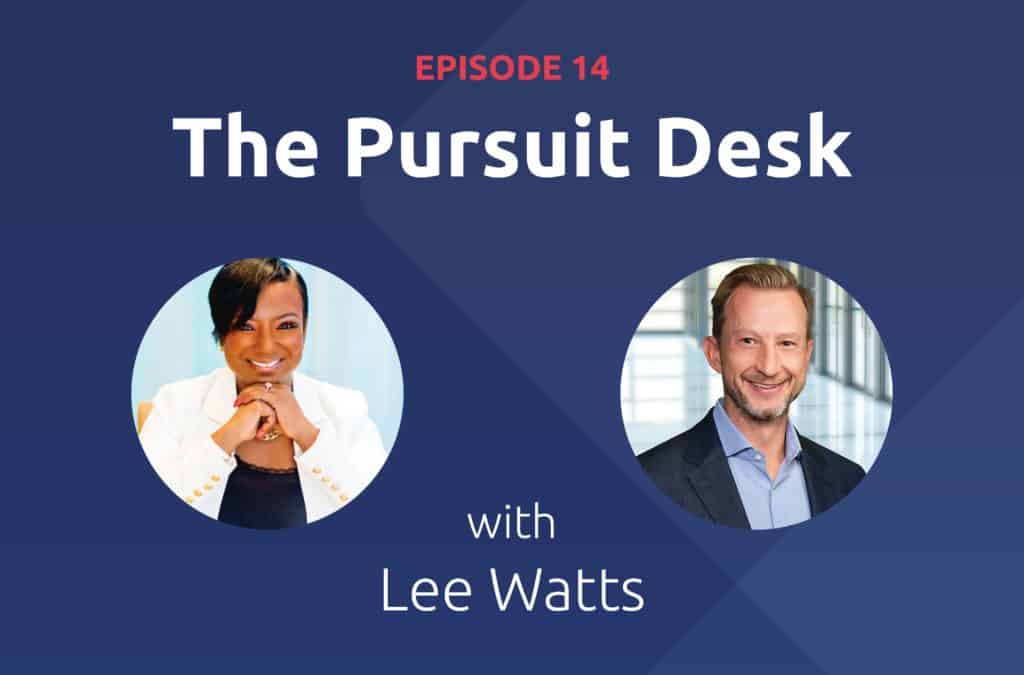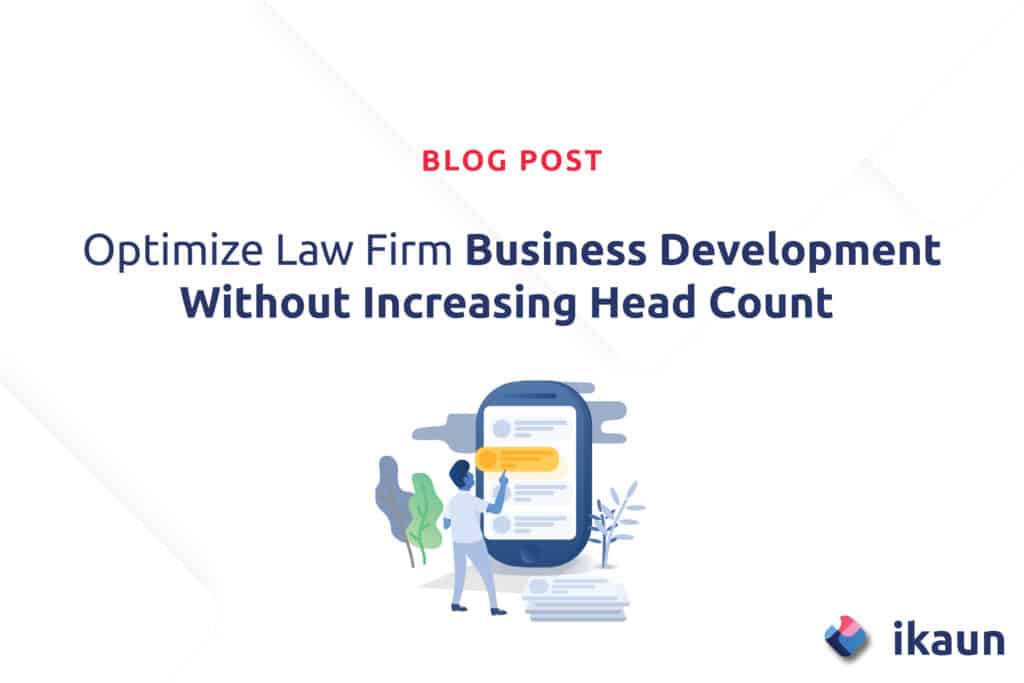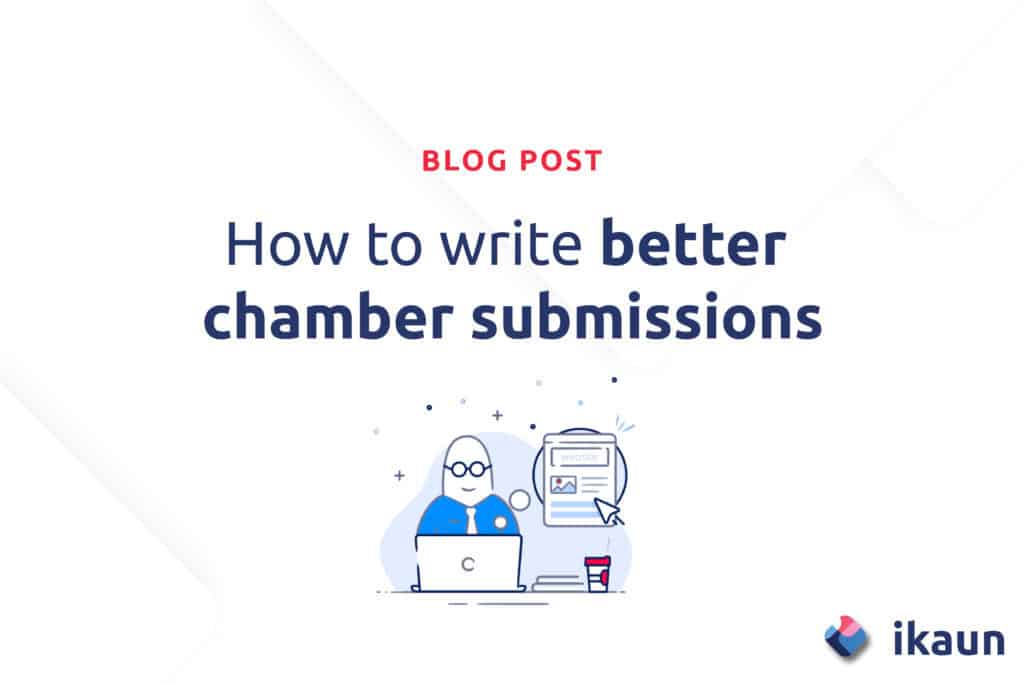In this week’s episode of The Pursuit Desk Michael Warren, VP Client Development & Intake Practice at Wilson Allen, joins Jason Noble to discuss the business and technology side of the legal industry.
With years of experience in the legal industry, Michael is a notable consultant and well-known entrepreneur after starting his consulting firm, Stanton Allen, which later merged with Wilson Legal Solutions to become Wilson Allen.
Michael started his career in legal data, and has worked with smaller firms, global conglomerates, and everything in between. What he observed is that most firms have the same challenges with data.
Connect with Wilson Allen Here
5:00 Firms are focusing more on data; how does data impact client development, and how do law firms measure that impact?
Michaels believes that in the past, the challenge that firms have faced is that they don’t understand what they were trying to measure. Michael has developed a model representing the different types of firms he has worked with – “value-focused firms” and “performance-focused firms.”
Value-focused firms tend to measure success and impact by their efforts and the value that clients derive from their work.
Performance-focused firms base success more on metrics, utilization, and inward-looking metrics.
A challenge that comes up consistently for both styles of firms is how does a business development application within a law firm extract necessary experience information from lawyers? There have to be enterprise search capabilities as well as a way to harvest experience proactively.
9:17 Are firms seeking out more updated experience catalogs?
Michael works with firms to evaluate what they want from a system, both operationally and strategically. For many firms, the emphasis is on experience.
Michael doesn’t find this surprising as most firms have a handle on certain experience data – for example, they know who knows whom. But they don’t typically collect enough experience data to use all that is happening at the firm for business value.
There are many conversations around pricing and thought that goes into an attorney’s hourly billing rate. They’ll take into account an hour of work but overlook all of the hours of past experience that better prepared them for that hour of work.
They charge not just for the hour work, but the 30 hours of experience that qualified them for that particular client or matter. So even billing relies heavily on knowledge and experience as it factors into layered pricing.
11:45 When looking at pricing, are you still seeing flexible pricing methods that differ from the standard hourly billing rate?
Michael thinks there are degrees of sophistication around what firms are doing when it comes to pricing. Broadly speaking, pricing teams or the creation of these pricing teams is something he sees more often. Pricing is always an important group to talk to when considering experience management. You want to understand the modeling that they use for the pricing and the representative matters they need to access to determine that modeling.
Experience is now becoming more important in this area, whereas traditionally, pricing has always been separate. Having that accurate set of representative work that is correctly profiled is essential to pricing.
Marketing and business development teams looking to implement experience systems will want those pricing teams involved in that discussion because they know they will want to be a consumer of the experience as well.
15:15 Knowledge management cares about very specific pieces of information – are firms going more for the matter tombstones and descriptions, or are they getting more specific in collecting detailed information?
This can be a difficult question to answer because it’s a mixture of a lot of different elements. A lot of firms are looking for something where their focus is, “how well does it work with Microsoft, what does the CMS look like, does it integrate with the website CMS”? Every firm has requirements they want a knowledge management system to meet.
Wilson Allen is working on a number of projects that began with a focus on data monitoring and governance before any discussions about proposal templates.
What each firm wants on each matter is different, but there are some commonalities. And it’s important to ask what you are looking for based on that particular matter.
Firms that are more likely to succeed are those looking for the commonality of data points. And Michael has found that you need a really solid data strategy to succeed at that.
18:08 How are clients’ expectations of CRM systems changing?
As technology advances to solve problems, we can almost forget how bad it was before. Take CRM, for example. It keeps solving firm’s problems and adding new features to the platform. Many people working in legal marketing today can remember life before email marketing and having to stuff envelopes to launch a campaign. People have forgotten how dreadful that was in comparison to now.
With the big shift to working from home, people have moved to online marketing campaigns like webinars. Michael suggests that if we didn’t have the current CRM systems that a lot of firms complain about all the time, none of these campaigns would work.
So yes, in a lot of ways, the expectations of what CRM systems can deliver have moved faster than what vendors can provide. To keep up with client’s demands, in many cases, a lot of vendors are acquiring complementary offerings to add new features and stay relevant.
20:09 What is your vision of the different types of firms and how they operate?
To put it simply, a lot of firms have similar systems in place, but the emphasis on what they are trying to accomplish is different.
The value-focused firm emphasizes what we have learned from the work we have done with clients and how we can best apply that to other clients.
The performance-focused firm looks at the cross-selling opportunities and how to generate more revenue from past experience. This model illustrates the difference in emphasis – there is a client-centric way of thinking vs. measuring utilization and leverage.
The interesting thing about the value-focused firm is they have recognized the flexible pricing models and their impact on the client’s perception of value. It’s having that flexible approach to pricing that helps firms think more about how to achieve the best rates for their work or how to improve leverage.
Firms should not underestimate how important it is to understand the perception of their pricing – how your clients and employees value the work they are providing.
Michaels suggests looking at what intelligence you have gathered from your clients and ultimately work out who your best clients are and how you can find more like them. You want to play back to your clients all the things you know will make them choose you as a firm.
26:40 We are seeing a strong push for leveraging alumni relationships; do you find that is the case with your clients as well?
The answer is yes. Michael worked with a client and everyone on the project wanted to talk about alumni relationships – who used to work there and where they are now. There is incredible value in the network of the people you know and the trust you built with them through working together and coupling that goodwill with an understanding of the work you’ve done and the future life of that work.
That’s another way you can leverage your experience – what you know as well as who you know. If you have a loyal and happy employee who is going to move companies, you have a new person in your network at that new company.
That’s how law firms utilize their alumni as well and build relationships.
To reach Michael Warren, you can email him at Michael.warren@wilsonallen.com.
Key Features
Ikaun was built to help organizations easily create, discover, and use knowledge to enhance employee productivity and increase business outcomes.

Experience Finder
Leverage your organization's collective experience for better decision making; easily search for internal experts by skill sets, industry expertise, and more.

AI-Enhanced Search
Ikaun’s Intelligent-Knowledge-Assistant searches through your ikaun environment and other connected systems to help answer FAQs, find people, find assets, or support complex research scenarios.

Profiles
Create easy-to-read profiles that include biography, skills / expertise, employment history, certifications, affiliations and other key information about your employees.

Proposal Generator
Leverage experience already unified in your ikaun platform to create beautiful on-brand proposals and pitches in minutes.

Knowledge Campaigns
Deploy knowledge campaigns to inform employees about active pursuits, new clients, or firm news.

Integrations
Connect your document management systems, CRM, and other popular applications with ease and confidence.




